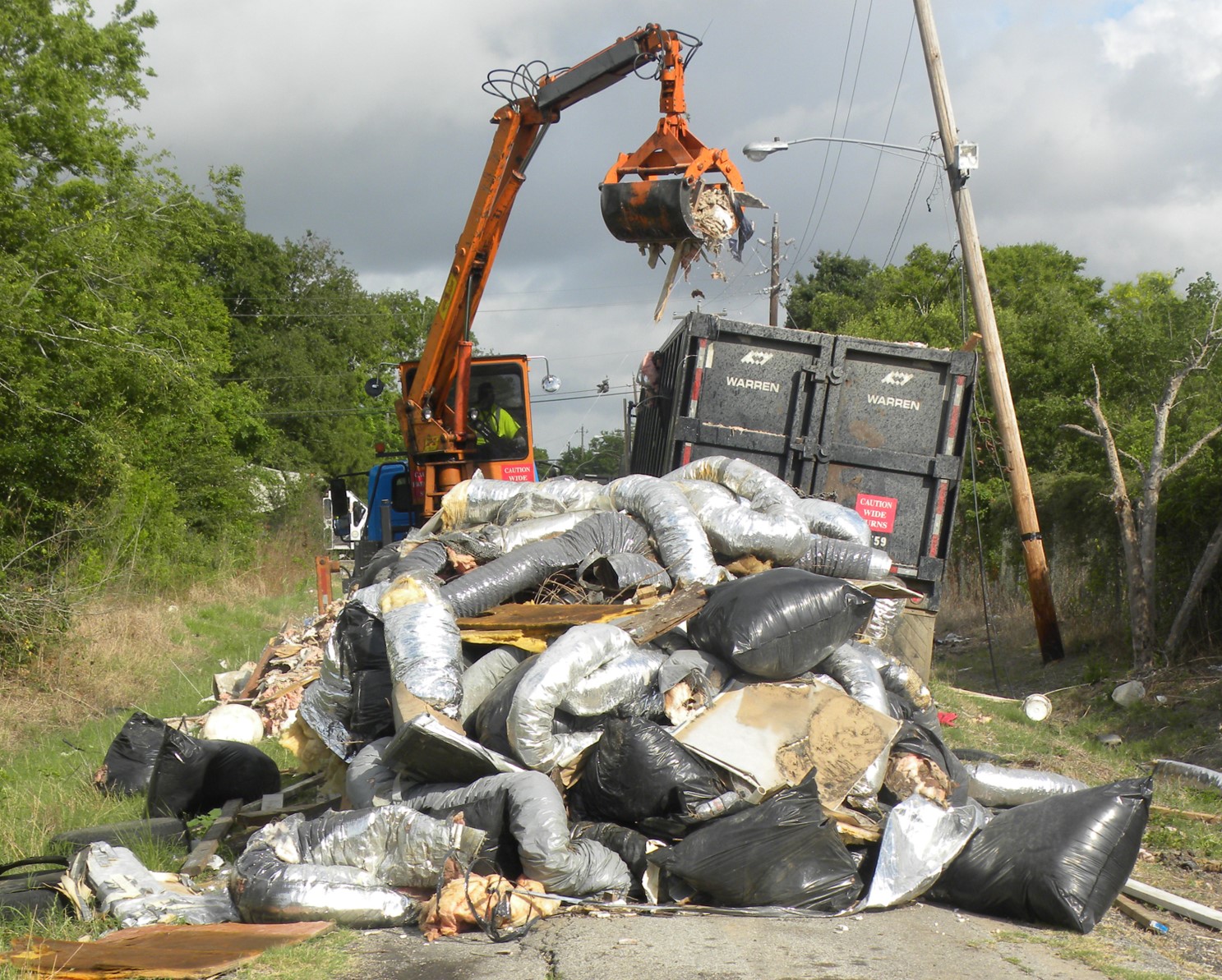
RAPID CLEANUP
 The City of Houston recognizes that the most important and tangible way to reduce the impact of illegal dumping in our neighborhoods is to clean it up as quickly as possible while considering preventative solutions to reduce the chances of recurrence. The presence of dumping often leads to more dumping and chronic dumping in neighborhoods is tied directly to negative social outcomes. While the City’s Solid Waste Management Department (SWMD) navigates through significant budgetary challenges related to the absence of a dedicated funding source, the mayor has directed City departments to increase their efforts to quickly resolve these matters.
The City of Houston recognizes that the most important and tangible way to reduce the impact of illegal dumping in our neighborhoods is to clean it up as quickly as possible while considering preventative solutions to reduce the chances of recurrence. The presence of dumping often leads to more dumping and chronic dumping in neighborhoods is tied directly to negative social outcomes. While the City’s Solid Waste Management Department (SWMD) navigates through significant budgetary challenges related to the absence of a dedicated funding source, the mayor has directed City departments to increase their efforts to quickly resolve these matters.
Increase funding for heavy trash, dumping and litter abatement
$11.5 million for supplemental heavy trash, illegal dumping and litter control contracted collections. In September 2022, the Houston City Council approved the use of $2.1 million in the General Fund to supplement the SWMD heavy trash and illegal dumping collections program. These funds were used to secure agreements with local private waste haulers to address 311 Service Requests related to illegal dumping. Since then, the City has abated more than 2,170 dumpsites totaling 28,057 tons.
Additional funds, in the amount of $7.9M, were provided by the American Rescue Plan Act (ARPA), to support the City’s aggressive approach towards maintaining heavy trash collection schedules and illegal dumping removal efforts through fiscal year 2025. The One Clean Houston Program also creates provisions to address scattered litter and miscellaneous debris derived from illegal dumping and failure to properly secure items prior to collection. In January 2023, the SWMD invested $1.3M to secure the services of a litter abatement contractor, Smartscaping, to remove scattered debris in various parts of the city, particularly areas severely impacted by unlawful dumping.
As a direct result of these investments, response times to 311 Service Requests for illegal dumping have decreased by 40% over the last year. Prior to this initiative, the average time to resolve these matters was approximately 40 days. The recent program enhancements reduced the average resolution time to 24 days. As continued improvements are adopted, the SWMD expects the average resolution time to decrease to 7 – 10 days.
Improve complaint routing and inter-departmental/agency coordination
No additional funds required. The City of Houston is improving the way 311 service requests for illegal dumping and neighborhood nuisances are handled to ensure a quick and quality response. Each department’s role has been clearly defined, and processes are being streamlined and automated to avoid errors and delays in the City’s response. Service requests will only be closed once the department confirms that the issue has been resolved.
Improve efficiency of collections equipment
$3 million to purchase single-operator grapple trucks. Each year, the SWMD collects more than 250,000 tons of combined bulk waste and illegal dumping. The standard approach requires three separate operators working in tandem with three separate vehicles. This year, the department will repurpose employees and equipment to improve operational efficiencies by incorporating the use of self-loading single operating collection vehicles valued at approximately $350,000 per unit. This proven strategy will reduce the environmental impacts and operating costs while expediting the removal of unlawful dumping in communities.
Attract and retain solid waste drivers
$200,000 for driver hiring incentives. Employees and equipment are the two greatest resources of the SWMD. The department has been heavily impacted by the national driver shortage, causing an increase in vacancy rates to 17%. In an effort to address the driver shortage, the department is increasing recruiting efforts through job fairs and increased hiring incentives up to $5,000 per person.